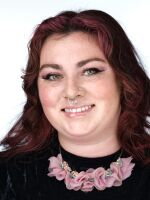The coronavirus pandemic sent many fields into the virtual world – as people were unable, for a time, to meet in person safely.
Now, tech originally used for safety is having an impact on fields like art conservation.
University of Delaware professor Joelle Wickens can’t access the upper floors of the Rockwood Museum from her wheelchair. Now, she can see it through the eyes of her students thanks to Hololens.
“They would like, carry me in my wheelchair up a couple of stairs to get into the house, but then I could never get upstairs to a lot of the other places and I realized that this would be an opportunity for me to be able to see those things,” Wickens says.
Hololens is a virtual headset that projects what the wearer sees back to a monitor, in this case, Wickens’ laptop. She and some of her students like Margalit Schindler have big ideas for the tech.
“I think this is a tool that a lot of smaller institutions that don’t have a conservator on staff or are out in the boonies and might not have the resources of a metropolitan area could definitely benefit from something like this too," Schindler says.
A better connection will come with a better picture, and Wickens says a camera with a higher resolution could make the tech a game changer for her field and others. She has ideas to use the tech rather than sending people for art preservation surveys and exhibitions. She says it could also aid in distance learning.
Wickens and her team are working with UD’s Information Technology department to work out the glitches, but even with those hurdles - they already see the game-changing impact this virtual tech is having.




